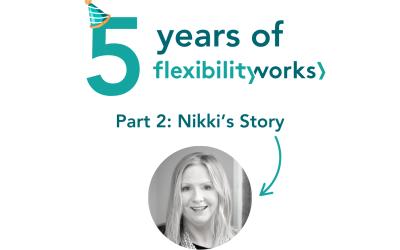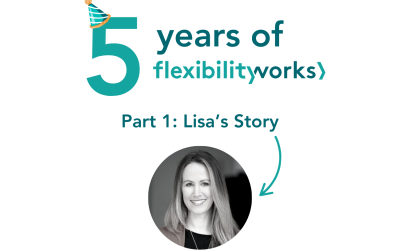By Nikki Slowey, Flexibility Works co-founder and director
The resignation of Deputy First Minister Kate Forbes this week caused politicians of all persuasions to talk of a ‘loss’ for Scottish politics. Whether or not you agree with her approach, Ms Forbes is undoubtedly a gifted and successful politician. And she’s announced her intention to leave because her job and family life are incompatible.
While there are specific questions over how Holyrood ensures diversity among the people making decisions about how we live, this is also a cautionary tale for all employers.
It’s a reminder that talented employees will leave if their job is too big, or too inflexible, to manage alongside home responsibilities. And it’s a reminder that it’s usually more diverse groups who are the first to go – people with childcare needs (despite progress, that’s still mostly mothers), people with other caring responsibilities or health conditions and disabilities.
Inclusive workplaces with diverse workforces are proven to perform better than those where everyone ‘thinks the same’. Creating human-sized jobs that can flex round needs and responsibilities outside of work is an essential part of that.
Demand for flex among parents
In her resignation announcement Ms Forbes said she didn’t want to ‘miss any more precious years of family life’. So many parents will empathise with that. Add in that childcare is often hard to find and/or expensive and there are many good reasons parents want and need to work flexibly around their children.
Our research with more than 800 working parents in Scotland shows three quarters (75%) use some kind of flexibility in their role, significantly higher than the Scottish national average of 67%.
Of the 24% of parents who don’t currently work flexibly, 63% would like to, meaning the very vast majority of Scottish working parents either already work flexibly or would like to.
Impact on ability to work
Nearly one in five (18%) parents who work flexibly told us they’d have no choice but to stop working completely if their flex was no longer available.
Some groups feel the impact more. The figure for mothers is 23%. That’s almost one in four mothers who work flexibly potentially dropping out of work if the flexible-working-glue holding work and home life together is taken away.
The figure is higher for lone parents at 26%, and higher still for parents in poverty (30%). It’s highest for parents earning the least (less than £20K a year), and parents who live in a household where someone has a disability or long-term health condition, both at 31%.
Why creating more flex is worth it
Creating more flexible working opportunities can help many people, not just parents, manage their work alongside personal needs and responsibilities. Many people only want small amounts of flexibility, such as to work from home occasionally, or to start and finish a little earlier or later in the day. It doesn’t have to mean huge changes for employers.
Flexible working unlocks significant business benefits too. Our research with Scottish employers shows three quarters (75%) think flexible working helps them retain good staff, 59% say offering flex has improved the quality and quantity of candidates applying for roles, 69% say greater flexible working has reduced sickness and absence rates and 64% say flex has helped them have a more diverse workforce. Offering flexible working isn’t just about being ‘nice’ to staff, it makes business sense too.
Getting personal
Ms Forbes’ experience reminds me of why my brilliant co-director, Lisa Gallagher, and I founded Flexibility Works. We are both working mothers (with six boys between us). We both wanted part time arrangements to manage big jobs we loved and the demands of being a parent. Neither of us got what we wanted. It was fulltime or bust. We know first-hand how much talent is leaving the workforce because of a lack of flexibility. And we believe (through every fibre of our bodies) that greater flexible working is a win-win for people and employers. That’s why Flexibility Works exists to help employers find the right solutions for their people and their business.
Holyrood
As an employer, Holyrood has unique challenges in how to attract and retain talented politicians that reflect our nation. There should be parents, carers, people from minority ethnic backgrounds, or with disabilities to represent us all when decisions are made in how our country is run. Kate Forbes’ resignation is a reminder of what happens if we simply shrug and say ‘that’s just how it is’. Smart employers are changing how people work. So should Holyrood.




